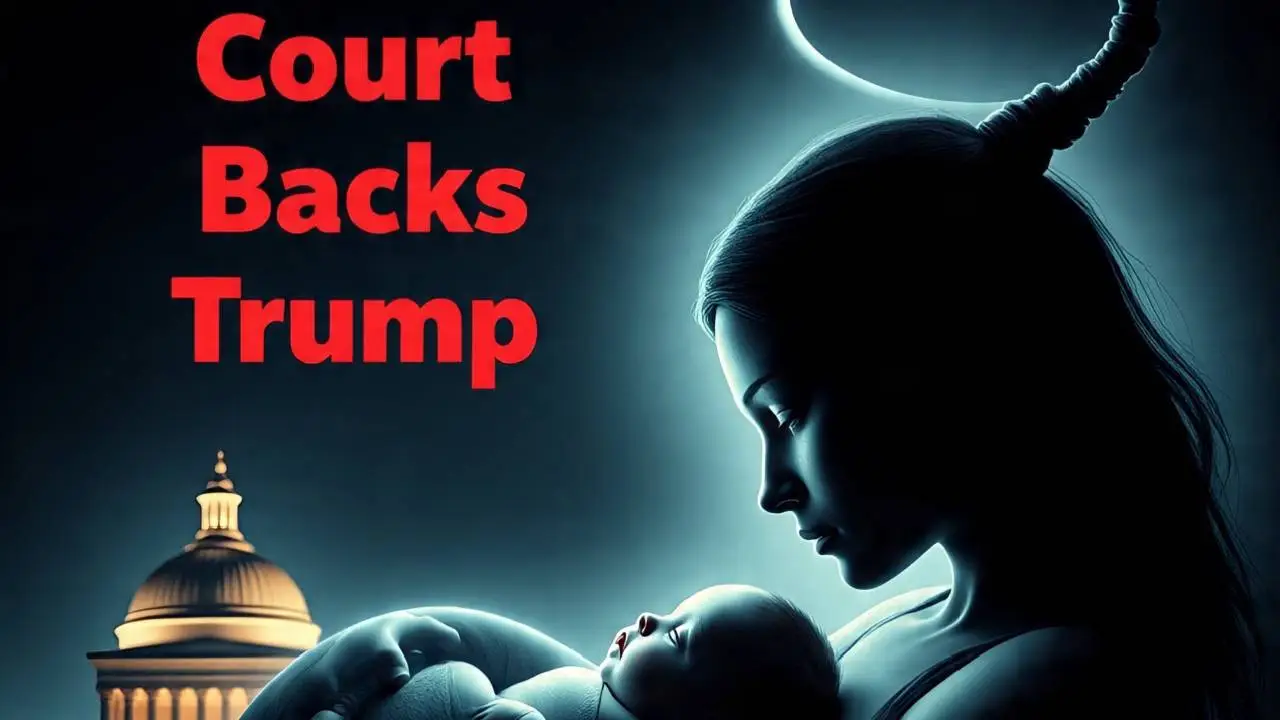
trump
International News: The U.S. Supreme Court has restricted the power of federal judges to block nationwide enforcement of executive orders related to birthright citizenship. The ruling indirectly supports President Donald Trump’s controversial directive aimed at denying automatic citizenship to children born to non-citizen parents. While lower courts had previously halted the policy citing constitutional concerns, the top court’s move narrows their influence. Now, district judges cannot impose nationwide bans, limiting their orders to specific jurisdictions. This shift creates legal ambiguity around how Trump's directive will unfold across states. Immigrant communities fear it could disrupt long-standing protections.
The ruling has triggered panic among immigrant women, especially those expecting children in the U.S. Legal aid groups and immigration attorneys report a surge in inquiries from anxious families. The primary concern: Will their U.S.-born child still qualify as an American citizen? Under the 14th Amendment, children born on U.S. soil are granted automatic citizenship. But the executive order challenges this constitutional principle for undocumented parents. Expecting mothers now face the nightmare of statelessness for their newborns. The legal fog has deepened their emotional trauma. Even green card holders are unsure of their child’s status.
Lorena, a pregnant asylum seeker from Colombia living in Houston, embodies the fear now gripping thousands. She’s due in September and worries her child could be born without any nationality. “I don’t know if I can pass my citizenship,” she told reporters. Lorena is also uncertain if her pending asylum case could shield her baby. Her greatest fear is not just losing U.S. citizenship for her child, but raising a child who legally belongs nowhere. This personal crisis reflects a larger legal and humanitarian dilemma. Thousands may now live in similar limbo.
The 14th Amendment, ratified in 1868, grants citizenship to anyone born in the U.S. But Trump’s administration argues that this was never meant for children of undocumented immigrants. His legal team claims birthright citizenship encourages illegal immigration. Critics, however, warn that the reinterpretation could undermine core constitutional values. Constitutional scholars view the Supreme Court’s silence on the substance of Trump’s order as deeply troubling. It may signal the beginning of a judicial shift. For now, the Amendment stands, but its future looks increasingly uncertain under political pressure.
Civil rights groups have condemned the ruling, warning it sets a dangerous precedent. They say it emboldens executive overreach and weakens federal checks and balances. Immigration nonprofits have launched emergency legal hotlines to assist affected families. Advocates argue that birthright citizenship is fundamental to American identity. “This is not just about immigrants—it’s about what kind of country we want to be,” said a spokesperson from a national immigrant rights coalition. Legal experts expect multiple new lawsuits to challenge both the ruling and its implications. The battle is far from over.
A looming fear among advocates is the rise of stateless children—those born in the U.S. but denied legal nationality. Without documentation, they may lack access to healthcare, education, or legal protection. This concern has sparked diplomatic questions too, as many countries don't automatically grant citizenship to children born abroad. U.N. human rights bodies are also closely monitoring developments. The humanitarian cost of such a legal shift could be profound. Birthright citizenship isn’t just legal—it’s a safety net for generations. That net now hangs by a thread.
Despite the ruling, how Trump’s executive order will be implemented remains murky. Federal agencies have yet to outline enforcement procedures or timelines. Some states may push back, setting the stage for a fragmented legal map. Meanwhile, advocacy groups are mobilizing at the grassroots level. Political analysts say the issue may become central to the upcoming election cycle. For millions, the question is urgent: Will their child be welcomed as an American, or rejected at birth? The nation now watches—and waits.





Copyright © 2026 Top Indian News
